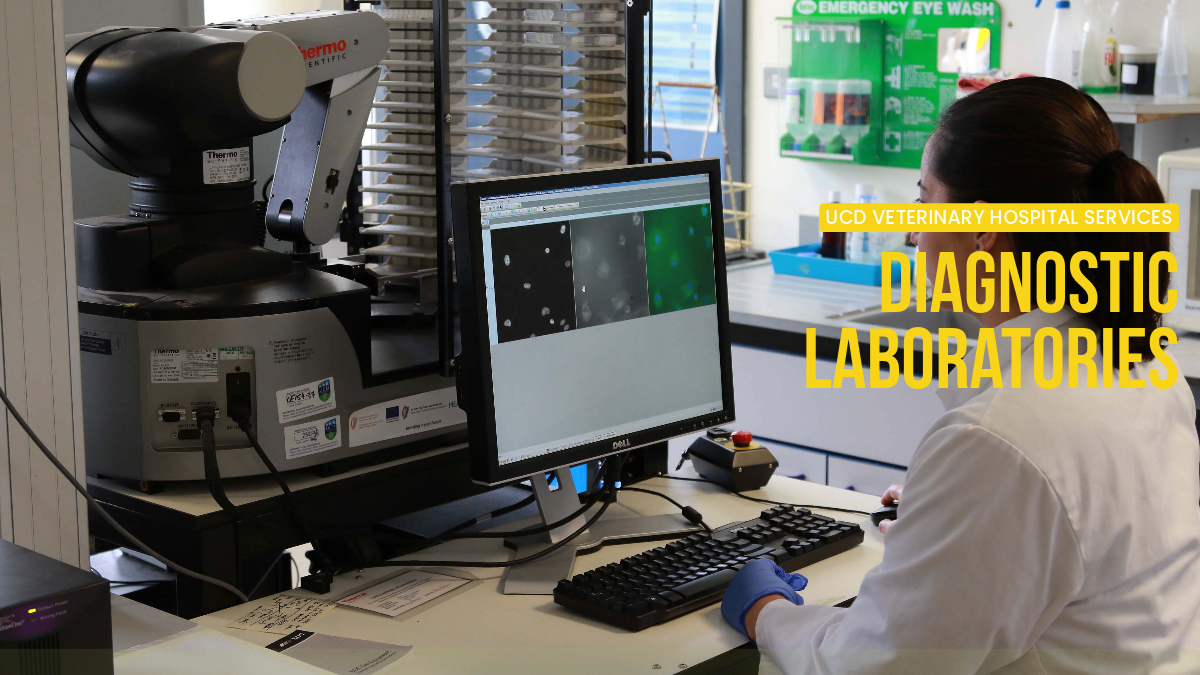The staff in the Clinical Pathology Laboratory provide a friendly, expert and rapid-turnaround service for all diagnostic tests in their discipline. Our Veterinary Clinical Pathologist is board-certified by the ACVP, ECVCP, and RCPath; the lab is approved for training Residents in Clinical Pathology, four of whom have been boarded. Staff analyse ~15,000 samples annually for comprehensive, clinical chemistry and haematologic profiles, and report the results out by email on the same day as sample receipt. Any special tests not available in-house are referred to a professional, external lab. Assistance is provided with interpretation of test results, where needed.
The samples analysed are received not only from the UCD Veterinary Hospital, but from veterinary practices all across Ireland. Most samples come from dogs, cats, horses and dairy cattle, but also from swine and other ruminants. The Lab has also processed samples from laboratory animals and livestock from a wide variety of academic and government-funded research projects. Many samples have also been tested for zoo animals and wildlife, with some memorable cases including species such as the badger, squirrel, rhinoceros, giraffe, snow leopard, Asian lion, okapi, tapir, mangabey, and many of the great apes. The samples received into the Lab are a valuable resource for teaching our students.
State-of-the-art methods, technologies and reagents are used for testing, and the data is collected and reported from a custom-designed, laboratory-information management-system. In addition to blood-based testing, ~1,000 tissue or body fluid samples are analysed annually by cytologic photomicroscopy for diagnosis of causes of lumps or bumps, fluid accumulations, and tissue pathology. Haemostasis, urinalysis, blood gas analysis and a wide range of bespoke diagnostic test kits are routinely performed or used.
The staff are also active in teaching Veterinary Medicine and Veterinary Nursing students about Clinical Pathology. As part of their work, staff in the Lab have also validated and introduced novel diagnostic methods for lymphoma, pancreatitis, and cardiac disease, and continue to work on these, and on diagnosis of feline infectious diseases.
For information on specific tests available, please consult the UCD Veterinary Diagnostic Laboratories Catalogue - 2024
The Clinical Pathology Laboratory can be contacted by phone on (01) 716 6161 or by email (opens in a new window)ucdvetlab@ucd.ie

